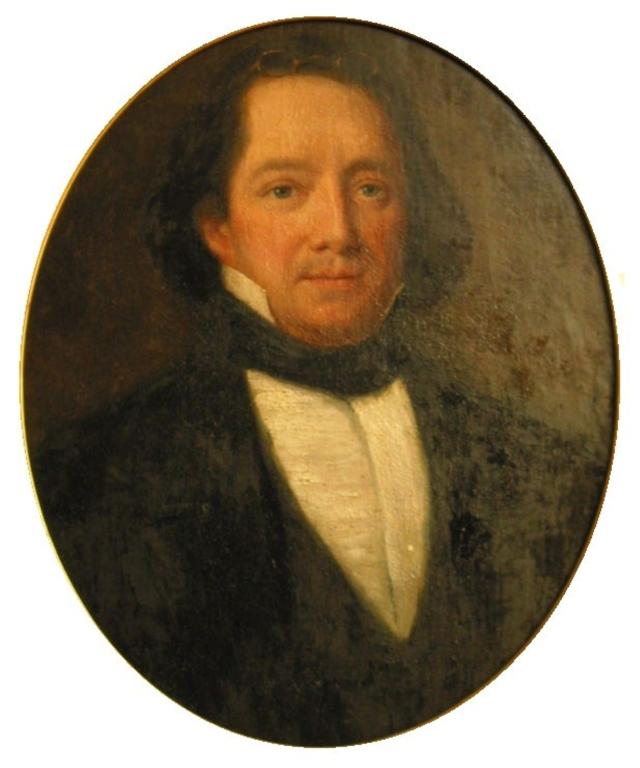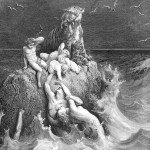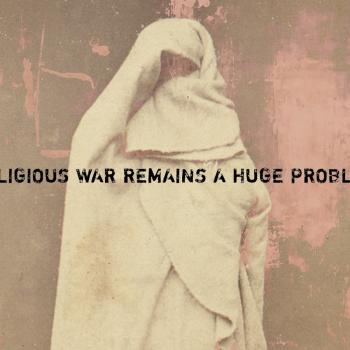Achille Murat

“There is no country in which the people are so religious as in the United States…The great number of religious societies existing in the United States is truly surprising: there are some of them for everything; for instance, societies to distribute the Bible; to distribute tracts; to encourage religious journals; to convert, civilize, educate… to take care of their widows and orphans; to preach, extend, purify, preserve, reform the faith; to build chapels, endow congregations, support seminaries… to establish Sunday schools… to prevent drunkenness, etc.” –Achille Murat: French observer of America in 1832
VERDICT: Deliberately Altered
“From the pure doctrines of Unitarianism to the gross absurdities of Methodism, all shades may be found here, and every opinion has its partisans, who live in perfect harmony together. Among this variety of religions, everybody may indulge his inclination, change it whenever he pleases, or remain neuter, and follow none. Yet with all this liberty, there is no country in which the people are so religious as in the United States; to the eyes of a foreigner they even appear to be too much so; but that is only apparent as I shall explain to you.
[The ellipsis Hobby Lobby inserted here represents more than 4,250 words—19 pages of text.]
The great number of religious societies existing in the United States is truly surprising: there are some of them for everything; for instance, societies to distribute the Bible; to distribute tracts; to encourage religious journals; to convert, civilize, educate the savages; to marry the preachers, to take care of their widows and orphans; to preach, extend, purify, preserve, reform the faith; to build chapels, endow congregations, support seminaries, catechise and convert sailors, negroes, and loose women; to establish Sunday schools where young ladies teach reading and the catechism to little rogues, male and female; to prevent drunkenness, etc. This last society in particular is very singular, and very much extended. The members engage never to drink any distilled liquor, nor to permit its use in their families; but nothing hinders them from drinking wine. In that they mistake the Creator for a bad chemist.” (emphasis added) – Achille Murat
This is an instance where Hobby Lobby grossly bowdlerizes the words of an ardent atheist criticizing the racist goals of religious sects. It is a shame that Hobby Lobby butchers Murat’s observations because they are interesting and distinctly irreligious. Murat’s tone regarding religion is often derogatory – “gross absurdities,” “ridiculous practices,” “no preacher ever received a cent from me.” He was a “consistent Atheist,” according to his friend Ralph Waldo Emerson who respected the “intrepid doubter” for his skepticism. Peter S. Field, Ralph Waldo Emerson: The Making of a Democratic Individual, 74, 76 (2003). Murat lampooned the Methodist faith so heavily (in the 19 pages omitted in Hobby Lobby’s quote) that he hastened to add, “You think I am joking, that I am speaking to you of the farces of Saint Medard, which made so much noise in the time of Voltaire. . . .” He was equally critical of Presbyterians, “[B]ilious children, austere disciples of the gloomy Calvin, [who] have inherited all his gall and venom, and do not scruple to invest the Divinity with their spirit of vengeance and Satanic wickedness.”
The only kind words he devoted to religion were about the Unitarians and their lack of faith and superstition, “They do not believe in the Holy Spirit, nor consider Jesus Christ but as an inspired man, created to serve as a model to the world. They do not believe in the eternity of future punishments, and they deny the inspiration of the Old Testament. Their worship is pure, elegant, and free from every species of ceremony or superstition; they address themselves solely to the reason, both in the judiciously selected hymns they sing, and in their sermons, which latter are in general moral discourses of considerable literary merit.”
The proliferation of the groups mentioned in Hobby Lobby’s version of Murat’s quote was only possible because “immense sums are extracted from the pockets of the people. There is certainly no clergy so costly to the people as the American clergy; but it is only fair to add that these contributions are strictly voluntary, and I, for instance, have no right to complain, for no preacher ever received a cent from me.”
He had little positive to say of the earliest New England colonial governments: “[T]hey established among themselves a species of theocratic government. Although the persecutions they had suffered ought to have taught them tolerance, they began to persecute with all their might Quakers, Catholics, and witches. They had digested a code of laws called, I know not why, ‘blue laws,’ which established a variety of ridiculous practices as an integral part of good morals. The Sunday was to be observed in the most rigorous manner; on that day people were not permitted either to travel or to walk in the streets, (except to and from church,) nor to cook, nor even to kiss their wives.”
Unlike Hobby Lobby, Murat was proud of the separation of state and church: “On the adoption of the constitution of the United States, the principle of general toleration was not only adopted as part of the federal compact, but Congress was even interdicted from legislating upon religion.” He thought that this separation would eventually result in the “overthrow” of the Christian religion: “You will ask me, probably, after reading this, if religion, supported by such means, and disposing of such capitals, does not make great progress, and if it does not bid fair soon to penetrate everything? On the contrary; with difficulty does it keep its footing: it is like a ship sailing against the tide, which seems to make much way if we look at the water, and remains stationary in respect to the shore; in the same way is the church carried away by the great current of opinions, literature, and modern philosophy, which nothing can resist. This, above all, is the great opposing power, and which will certainly end by overthrowing the Christian religion; perhaps even this overthrow, considered as that of a complete system, is more advanced in the United States than is generally believed.”
Source: Achille Murat, The United States of North America (1833).
An online copy of Murat’s book.
Thus ends our exploration of Hobby Lobby’s twisted history.
Special thanks to Guerin Frei for all his help on this post.
FFRF is a national nonprofit dedicated to keeping state and church separate and educating about nontheism. We depend on member support, please join today.















